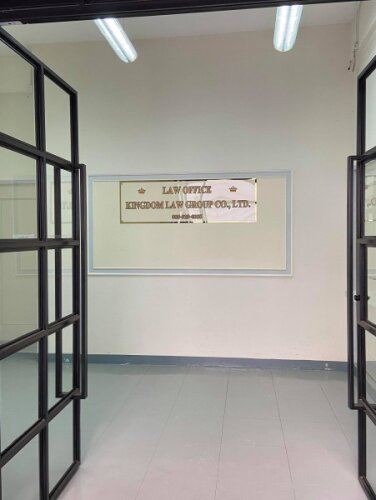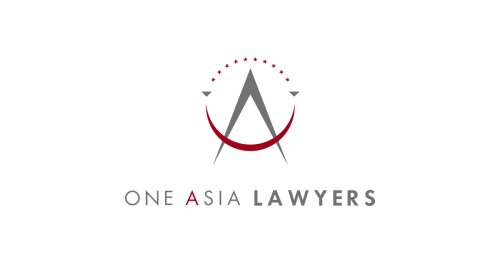Best Communications & Media Law Lawyers in Thailand
Share your needs with us, get contacted by law firms.
Free. Takes 2 min.
Or refine your search by selecting a city:
List of the best lawyers in Thailand
About Communications & Media Law in Thailand
Communications & Media Law in Thailand covers the regulation of telecommunication services, broadcasting, and information dissemination via various media, including press and digital platforms. These laws are designed to ensure fair business practices, protect consumer rights, and promote freedom of speech while safeguarding national security and public order. As technology evolves, Thailand's regulatory environment adapts to address new challenges and opportunities in the communications and media sectors.
Why You May Need a Lawyer
There are numerous situations where individuals or businesses might require legal assistance in the realm of Communications & Media Law in Thailand. Common scenarios include dealing with compliance issues regarding broadcasting licenses, disputes over intellectual property (such as copyright or trademark infringements), navigating regulations related to advertising and marketing communications, defamation cases involving media outlets, and resolving disputes arising from digital content creation and distribution. A lawyer specializing in this field can help interpret complex legal language, ensure regulatory compliance, and represent parties in negotiations or court proceedings.
Local Laws Overview
Key aspects of Communications & Media Law in Thailand include the Broadcasting and Telecommunications Commission Act, which establishes the National Broadcasting and Telecommunications Commission (NBTC) as the regulatory body; the Computer Crimes Act, which addresses cybercrime and online content; the Copyright Act, enforcing protections around creative works; and the Public Broadcasting Organization of Thailand Act, which regulates public broadcasting. Additionally, data protection laws such as the Personal Data Protection Act (PDPA) affect how communication and media entities manage user information.
Frequently Asked Questions
What is the role of the NBTC in Thailand?
The National Broadcasting and Telecommunications Commission (NBTC) regulates and supervises telecommunications and broadcasting services in Thailand, ensuring compliance with national policies and facilitating the fair distribution of radio frequencies.
How does the Computer Crimes Act affect online activities?
The Computer Crimes Act criminalizes various types of online misconduct, including hacking, spreading false information, and distributing illegal content, aiming to protect users and maintain cybersecurity.
Are there any restrictions on foreign media ownership in Thailand?
Yes, foreign ownership of media entities in Thailand is restricted, with limits set to ensure that media management and control remain predominantly in Thai hands, protecting national interests.
What are the consequences of violating broadcasting regulations?
Violations can result in fines, license suspension or revocation, or further legal action, depending on the severity and nature of the infraction.
How does copyright law protect creators in Thailand?
Thailand's Copyright Act grants creators exclusive rights to reproduce, distribute, and display their works, providing legal mechanisms to address unauthorized use or infringement.
What should a company consider when advertising in Thailand?
Companies must ensure that advertisements align with ethical standards, avoid misleading content, and comply with regulatory guidelines established by the Consumer Protection Board and other bodies.
What legal protections exist for digital privacy?
The Personal Data Protection Act (PDPA) stipulates how entities should process and protect personal data, outlining responsibilities for data controllers and establishing rights for data subjects.
Can defamation charges be brought against online content creators?
Yes, individuals or entities can bring defamation charges if online content is perceived to damage their reputation unjustly, with the Anti-Defamation and Computer Crimes Acts providing legal recourse.
How are media mergers regulated in Thailand?
Media mergers are subject to scrutiny under competition laws, which aim to prevent monopolistic practices and ensure a fair operating environment within the communications sector.
Is satellite television regulated differently from other broadcasting forms?
Satellite television is subject to specific licensing requirements and regulations to control content distribution, similar to other broadcasting forms but with additional cross-border service considerations.
Additional Resources
Individuals or businesses seeking further information or assistance can refer to the following resources:
- National Broadcasting and Telecommunications Commission (NBTC)
- Office of the National Broadcasting and Telecommunications Commission
- Ministry of Digital Economy and Society
- Thai Bar Association
- Department of Intellectual Property, Ministry of Commerce
Next Steps
If you require legal assistance in Communications & Media Law in Thailand, consider the following steps:
- Identify your specific legal needs to determine the right area of expertise required.
- Research and select a law firm or legal practitioner with a strong background in Communications & Media Law in Thailand.
- Prepare documentation and articulate your situation clearly to your legal advisor.
- Engage in a consultation to discuss potential legal strategies and solutions tailored to your case.
- Stay informed and involved in the legal process to ensure that your interests are adequately represented.
Lawzana helps you find the best lawyers and law firms in Thailand through a curated and pre-screened list of qualified legal professionals. Our platform offers rankings and detailed profiles of attorneys and law firms, allowing you to compare based on practice areas, including Communications & Media Law, experience, and client feedback.
Each profile includes a description of the firm's areas of practice, client reviews, team members and partners, year of establishment, spoken languages, office locations, contact information, social media presence, and any published articles or resources. Most firms on our platform speak English and are experienced in both local and international legal matters.
Get a quote from top-rated law firms in Thailand — quickly, securely, and without unnecessary hassle.
Disclaimer:
The information provided on this page is for general informational purposes only and does not constitute legal advice. While we strive to ensure the accuracy and relevance of the content, legal information may change over time, and interpretations of the law can vary. You should always consult with a qualified legal professional for advice specific to your situation.
We disclaim all liability for actions taken or not taken based on the content of this page. If you believe any information is incorrect or outdated, please contact us, and we will review and update it where appropriate.
Browse communications & media law law firms by city in Thailand
Refine your search by selecting a city.














